The issue of plagiarism has been in the headlines recently following the recent trial involving the musicians Robin Thicke and Pharrell Williams, who were accused of plagiarising a 1977 Marvin Gaye song in their 2013 hit song “Blurred Lines”.
This week, a federal jury in California ruled that “Blurred Lines” had plagiarised the Gaye song “Got to Give it up” and ordered a $7.4 million payout to Gaye’s family. According to the Hollywood Reporter, the jury heard testimony from musicologists on the signature phrases, hook, keyboard-bass interplay, lyrics and themes of the songs in their finding. Although the plagiarism was not found to be intentional, their examination nonetheless found that the similarities between the songs were more than simply a coincidence.
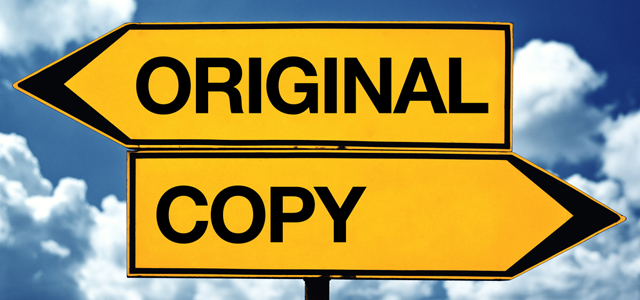
It’s a controversial outcome for the recent hit song which has become one of the best-selling singles of all time, with some critics predicting a “chilling effect” on song writing and composition. On the other end however, it also raises some interesting points about plagiarism, showing that regardless of intent (whether deliberate or not), copying is copying, and creators have the right to protection of their original work from being used without permission or credit.
In the publishing space, the types of plagiarism I encounter in books, blogs, videos and the like are generally more straightforward to identify than musical plagiarism (which is fortunate given my non-existent musical nous).
A good definition of plagiarism and how to avoid it is given by Indiana University. The Writing Tutorial Service at Indiana University states to avoid plagiarism, credit must be given when using:
– another person’s idea, opinion, or theory
– any facts, statistics, graphs, drawings — any pieces of information that are not common knowledge
– quotations of another person’s actual spoken or written words
– paraphrase of another person’s spoken or written words
Seems simple enough, but in our increasingly digitalised world where we can access and create information instantly at the click of a few buttons, plagiarism is a growing problem.
It can be obvious, like verbatim plagiarism, also known as unacknowledged direct quotation, where (selected or entire) passages are used without crediting the source. Or it can be more subtle, like paraphrasing or rewriting, where although none of the original language may remain, the key idea, and choice and order of information is the same. More on this with detailed examples are found on the Princeton University website.
The example of the “Blurred Lines” hit shows that no one is immune from plagiarising, and it can as easily be done by high-profile and successful people as it can be by the everyday person. Indeed, in the case of Robin Thicke who became a superstar and sold millions of records on the back of the popularity of that song, it could even be argued that he catapulted into fame and wealth through plagiarism. No matter the financial consequences of the lawsuit against him now, Thicke will continue to benefit from the fame and celebrity status he achieved through the song.
As in the Thicke/Williams examples, plagiarism can be a costly exercise, especially if you get rich off it, but there are other issues to consider as well. From the perspective of honesty and integrity, the ethics of copying another’s work and passing it off are really important. It’s essentially a form of theft which shows a lack of sincerity on the part of the plagiarist, who uses other people’s words, ideas, or experiences to communicate with their audience, pretending it’s their own. Basically, people are duped to part with their hard-earned money and place their trust in someone who’s misleading them.

From our perspective as a publisher offering free spiritual books to others (written by authors who also give their work freely), it’s not earnings that motivate us to address plagiarism, but maintaining the integrity of the work we do. When the books, articles, and information we publish are passed off by others, spiritual teachings offered purely for the betterment of others are monopolised and exploited by others for personal gain, which goes against the very principles of spirituality.
Hopefully discussion, exposure, and action upon plagiarism will be an effective deterrent, it’s not just an issue for those who create original content, but for those who consume it too.
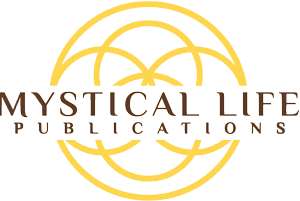


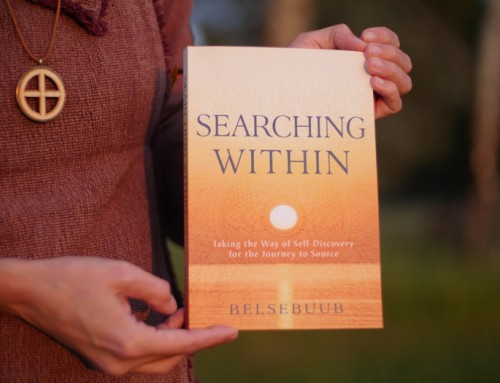
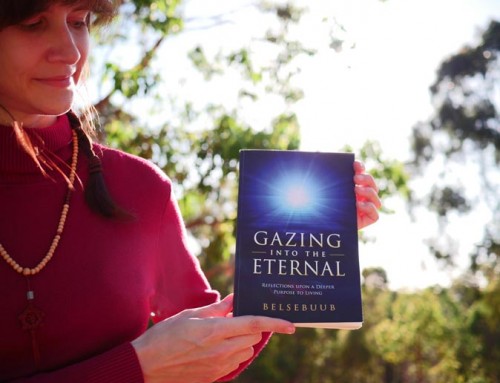
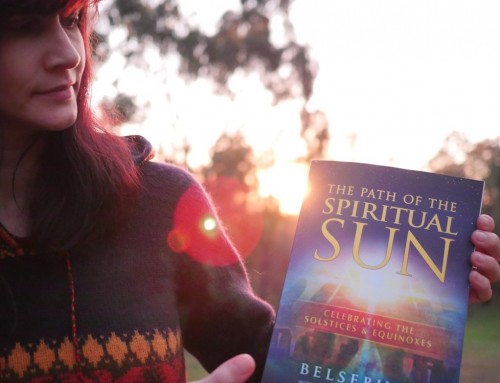

I haven’t heard about this music case, but it’s definitely interesting to consider. Definitely seems like the outcome of lawsuits like this is just “the cost of business” in many cases…
Thank you for pointing that out Priya. Isn’t that interesting like what Olga said the huge publicity and payouts that are involved in plagiarism in the entertainment industry, in something as relatively insignificant as a pop song, but when it comes to the important things in life like spiritual teachings, it isn’t paid attention to much at all. Goes again to show the priorities of the world.
The fight against plagiarism on the internet, especially of cost free but high demand material, seems like an endless and difficult task. Thank you MLP for having taken up the fight with such determination, courage and faith!
Well said. (Written)
I find that it’s important to bring awareness on this topic. Thanks Priya.
Thanks Priya for shedding light on this important subject and how it exists in society’s entertainment arena.
It makes me wonder how quick and straightforward it is to understand that plagiarism in the music industry is justifiably wrong, and the artists who have stolen the material, whether knowingly or unknowingly are in a position to face charges and pay up.
Is the reason why its taken more seriously and judged unanimously because of all the money involved? That an album or song that makes millions of dollars can gather attention for its plagiarism because that’s how value is weighed? Should a website such as yours, and books that are available free of charge be treated any differently because there is no exchange of large sums of money?
I honestly wonder if money motivates people to care for justice. Or if smaller or alternative situations stand a chance to fight for their rights if they are not embraced by large scale funding?
But I try to be optimistic : )
That’s a really interesting example you cited regarding the Blurred Lines song – how someone could copy (even unintentionally) and then become rich and famous off another’s work, and how even if the plagiarism is somehow brought to light the plagiariser is still likely to be rich and famous as a result of it any way.
When looking into spiritual pride. I once thought about what the difference was between Jesus performing miracles and healing, and the illusionist performer doing ‘magic’ tricks.
Where Jesus performed real miracles, and healing, selfishly out of love to help others. And where, like it says, I believe, in John he did so in a public way so as to show people that he has with him the truth and the real, so that people may follow his teachings and reach the spiritual. And that he perhaps in secret, carries out a great work for others, without people even knowing it, because he moves out of love for others.
Whereas the illusionist sees such things (and perhaps is in awe or has some understanding of such a wonder and the reality of it), but where the animal part within is stronger, or his pride sees it, and likes it. And he, in a way, mimics the real majesty of the divine, although being tricks, for the purpose of impressing other people and crowds. So they look up to him/idolise him/recognise him as someone special so that his pride is boosted and he can have the status, can get what his desire wants. Lust perhaps, power, divine pride ;))
So perhaps this relates to plagiarism as well in some cases. But instead of miracles its spiritual knowledge that is used. Where the authors of Mysticallifepublications have the real spiritual experience, and give not for any sort of recognition. And the one’s who plagiarise, (even though perhaps having a little bit of understanding themselves) are often actually using that material so as to draw people towards themselves and serve their own pride.
When reading Belsebuub’s books and the knowledge it contains (or other works of the past, or spiritual films or any other thing that conveys something of greatness) it’s always interesting for me to look at my own psychological reaction. The consciousness is moved by it, gets the learning, recognizing of truth, nourishment, strength and such. And where pride flares up, excited about seeing something it can use to impress others, coming to hijack it so as to serve itself.
Thanks Priya for this article, I think it’s good to realise that although the publications of MLP are given for free for people to learn from. That does not mean that MLP will just allow the works to be stolen and that action is taken against plagiarists.
Thanks Priya for continuing to bring more light onto this subject. The point you made about:
“ From the perspective of honesty and integrity, the ethics of copying another’s work and passing it off are really important. It’s essentially a form of theft which shows a lack of sincerity on the part of the plagiarist, who uses other people’s words, ideas, or experiences to communicate with their audience, pretending it’s their own. Basically, people are duped to part with their hard-earned money and place their trust in someone who’s misleading them.”
I think the duping, pretending is actually a really important aspect that is often overlooked – really it’s about “conning” people into believing something about you that does not exist. There is no integrity, and no honesty like you say. It’s all a lie, and sadly because the original message is usually not fully present, then the information being passed then is confusing, and can even become misleading..
It really does affect like you say not only the original author but the people who are at the receiving end of it..
Thank you Priya for this comparison, it seems that plagiarism is happening on so many levels and so many fronts. The name of the song “Blurred Lines” is very apt actually, almost sounds like mocking. Blurred lines between what is mine and what is yours…
That’s a pretty interesting case of plagiarism and surely not an uncommon one in the entertainment industry.
It’s amazing just how much plagiarism and copyright infringement is abound on the internet especially. Since it’s become this common practice I think it lends people to think it’s okay or accepted or they may not even realize they are doing it at all, since it’s the ‘style’ of many websites to just use information over and over without citing the original sources.
It’s a bit of a strange phenomenon really, and definitely needs more attention to be brought to it so that it can be prevented ideally, and if it does happen the proper steps can be taken to bring back that integrity to the original source. It seems like given the nature of the internet, it’s difficult to amend copyright infringement or plagiarism a lot of the times, and that has many people being left high and dry once their original content and hard work has been effectively stolen.